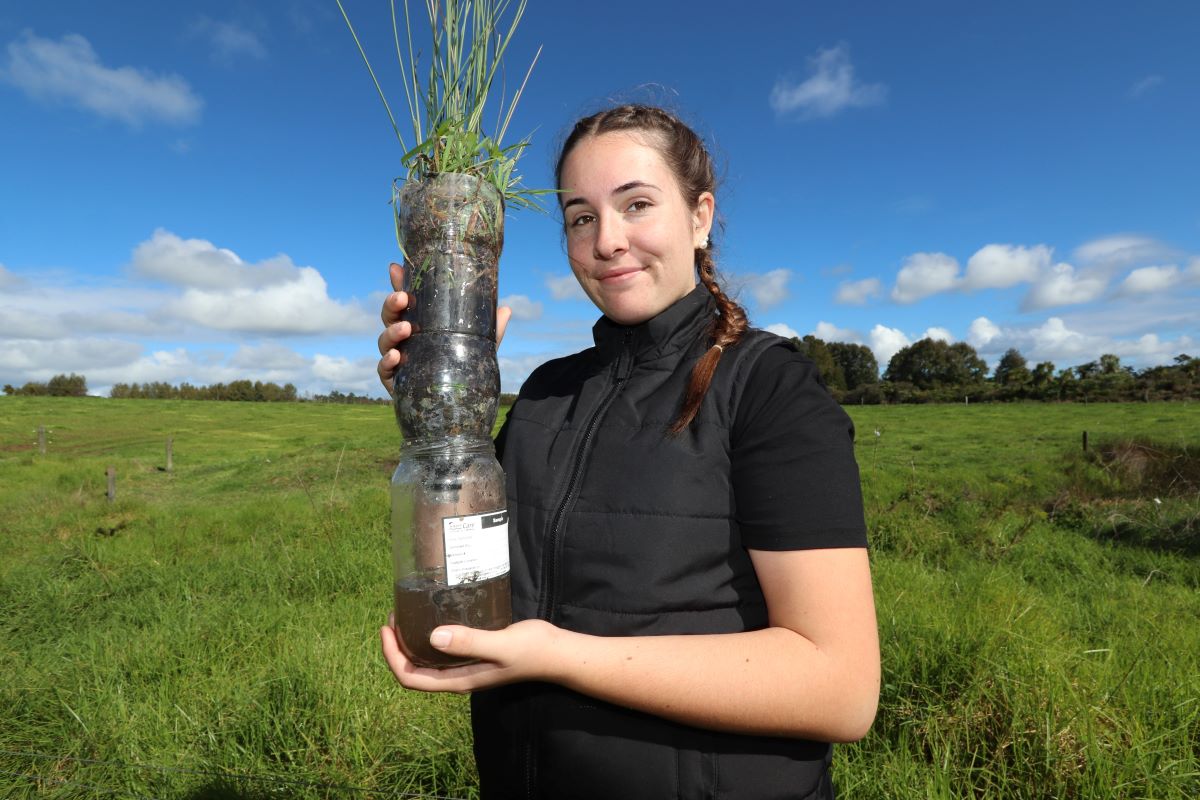Story
New programme nurtures youth leaders
Northland youth learned about everything from influencing policy to water quality and climate change during the launch of a sustainability-focused youth-development initiative in late April.
Ngā Tupuranga o Te Taitokerau, which aims to develop Northland’s future leaders in sustainability, is a collaborative programme between Northland Regional Council (NRC), Untouched World Foundation and the Ministry of Youth Development. The intensive, week-long pilot programme, which was fully funded by scholarships, was held at Te Tii Marae and involved 14 secondary-school and tertiary students. Similar courses are run around the country, including in the Marlborough Sounds and Central Otago.
During the week, participants had opportunities to develop their leadership skills and learn about behaviour change. They also discussed the sustainable future of their rohe (area) and its people, and spent time outdoors exploring Northland’s unique environment.
Several NRC staff joined the group to share knowledge in areas such as predator control and marine biosecurity. The students learned about the stages of kauri dieback by viewing infected trees and visited farms to test soil. Discussion sessions covered youth influencing policy in areas such as Predator Free 2050, water quality and climate change.
Among the participants was 17-year-old Whangarei Girls’ High School student Manaia Butler. Manaia joined the programme to gain leadership skills for her future ventures, and believes youth-focused initiatives are a key part of protecting Taitokerau’s environment.
“Workshops like this really help open [our] eyes to show not only Māori, but all youth how to look after the environment. I feel pretty privileged to have been here and I hope to do this in future years,” she says.
Exploring Northland’s history, culture and natural environment was an important part of the programme. The students visited Waitangi Treaty Grounds and other historical sites, experienced the birdsong on pest-free Moturua Island, prepared hāngī, kayaked down Waitangi River, and were lucky enough to see kiwi in a night walk through Rangihoua Heritage Park.
Untouched World Foundation programme director Dr Barry Law says experiential learning opportunities are an important component of developing well-rounded young leaders.
“We learn a lot in school, but often don’t have the opportunity to experience it, so it becomes acquired knowledge. We’ve got to connect people emotionally in order to create a change in habit. To do that we need to connect the head, heart, and hands to create emotional engagement and change,” says Barry.
The participants learned a lot from the activities and from their stay at the historically significant Te Tii Marae. Taylor Kees, a 25-year-old NorthTec student, says the experience was incredibly emotionally rewarding.
“I don’t have much connection to my own ancestors or any of their stories or knowledge. Being here, I just felt really welcomed and like I was part of a whanau.”
Ngati Kawa Taituha, Chair of Te Tii Marae, says it was great to see the participants take a keen interest in the area’s history and culture. He hopes the programme sparked a flame within them to “go out there and do something great”.
“Sometimes you just need the right support, guidance and mentorship to help you get to where you want to go. There are lots of opportunities out there for great leadership, so hopefully they’ve gained the skills necessary and they’ll want to go out there and represent our home in whatever area they choose,” he adds.
Feedback from this year’s participants, as well as key partners, will influence the design of future Ngā Tupuranga o Te Taitokerau programmes.

Participant Manaia Butler holds a potted wetland plant – simulating how wetlands filter dirt and contaminants.
